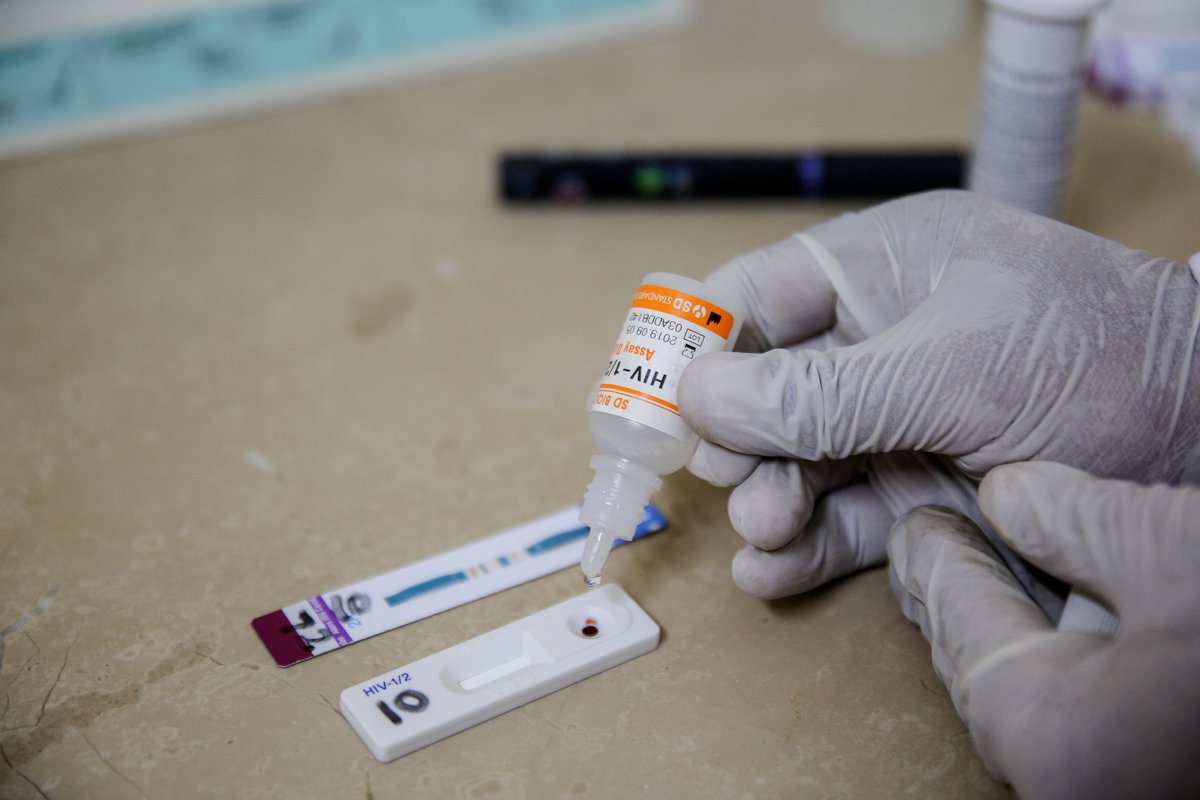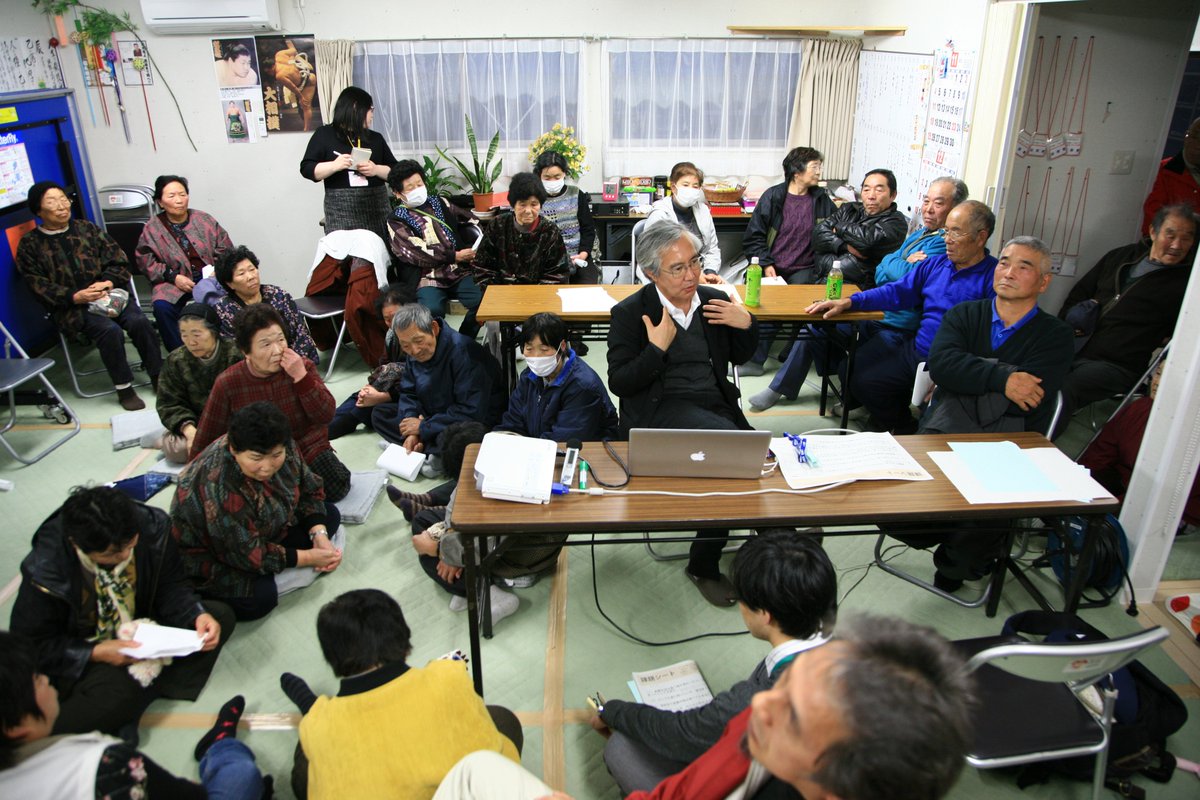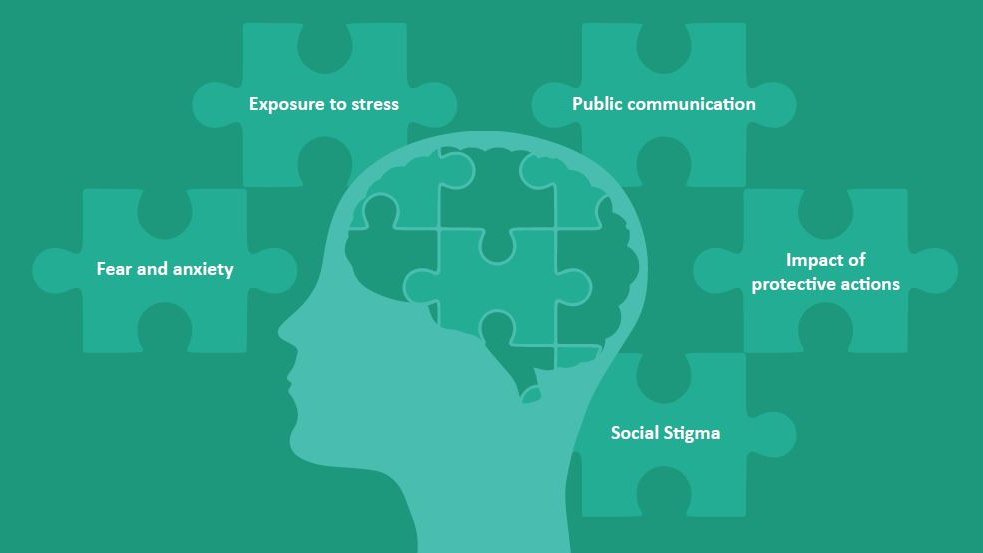
Today is #WorldAIDSDay!
Take a moment to thank community health workers, nurses, doctors, scientists & everybody involved in the fight against #HIV around 🌎🌍🌏.
They are at the forefront playing a 🗝️ part in supporting people living with HIV & helping to end AIDS.
Take a moment to thank community health workers, nurses, doctors, scientists & everybody involved in the fight against #HIV around 🌎🌍🌏.
They are at the forefront playing a 🗝️ part in supporting people living with HIV & helping to end AIDS.

Despite the #COVID19 pandemic, the number of countries reporting disruptions in #HIV services has declined 📉 by almost 7⃣5⃣% since June thanks to the unstinting work of health and community workers 💪.
👉bit.ly/39rD1JD #WorldAIDSDay
👉bit.ly/39rD1JD #WorldAIDSDay

🙏 Thank you nurses🦸🏻♂️
🙏 Thank you doctors🦸🏾♀️
🙏 Thank you community healthworkers🦸
for your bravery in the fight against #COVID19 & #HIV!
#WorldAIDSDay
🙏 Thank you doctors🦸🏾♀️
🙏 Thank you community healthworkers🦸
for your bravery in the fight against #COVID19 & #HIV!
#WorldAIDSDay

Countries around the world including countries in sub-Saharan African🌍, #Thailand🇹🇭 & #Bulgaria🇧🇬 have introduced a number of effective adaptations and innovations in service delivery during #COVID19.
More in detail 👉bit.ly/36r4Lfv
More in detail 👉bit.ly/36r4Lfv

Everyone in 🌎
Everyone in 🌍
Everyone in 🌏
No matter who they are or where they live, should have access to #HIV services during #COVID19.
Everyone 👴🏾👦🏿🧕🏼
Everyone 👳🏿👩🏼✈️👨🏼🎤
Everyone 👨🏾💻👩🏿💼👩🏼🏫
#WorldAIDSDay
Everyone in 🌍
Everyone in 🌏
No matter who they are or where they live, should have access to #HIV services during #COVID19.
Everyone 👴🏾👦🏿🧕🏼
Everyone 👳🏿👩🏼✈️👨🏼🎤
Everyone 👨🏾💻👩🏿💼👩🏼🏫
#WorldAIDSDay

🚨 All forms of stigma & discrimination have to stop 🚨
On #WorldAIDSDay & beyond, you can take part & stand up against #HIV related stigma & discrimination by:
✅Listening to people living with HIV
✅Educating yourself & others
✅Speaking out against stereotypes
On #WorldAIDSDay & beyond, you can take part & stand up against #HIV related stigma & discrimination by:
✅Listening to people living with HIV
✅Educating yourself & others
✅Speaking out against stereotypes

You will NOT get #HIV from
🔘standing by your friend
🔘drinking tea together
🔘hugging
🔘shaking hands
🔘showing that you care
#WorldAIDSDay



🔘standing by your friend
🔘drinking tea together
🔘hugging
🔘shaking hands
🔘showing that you care
#WorldAIDSDay




#DYK: 1M people die from #HIV every year because they:
🔺Don't know they have it
🔺Aren't on treatment
🔺Start treatment too late
#WorldAIDSDay
🔺Don't know they have it
🔺Aren't on treatment
🔺Start treatment too late
#WorldAIDSDay

#HIV doesn't spread through a hug or handshake.
BUT hugs and handshakes increase the risk of #COVID19 infections spreading.
So during this pandemic, show you care from a distance!
BUT hugs and handshakes increase the risk of #COVID19 infections spreading.
So during this pandemic, show you care from a distance!
https://twitter.com/WHO/status/1333733237068357639?s=20
Have you ever taken a #HIV test?
If YES ➡️ Well done! Just remember to do it regularly!
If NO ➡️ What are you waiting for?
On #WorldAIDSDay & beyond, the best time to take a test in NOW.
If YES ➡️ Well done! Just remember to do it regularly!
If NO ➡️ What are you waiting for?
On #WorldAIDSDay & beyond, the best time to take a test in NOW.

Early HIV diagnosis and testing are important to:
✅ start treatment & care if needed
✅ reduce infections
✅ reduce AIDS related deaths
#WorldAIDSDay
✅ start treatment & care if needed
✅ reduce infections
✅ reduce AIDS related deaths
#WorldAIDSDay

It’s time to 1⃣invest, 2⃣innovate and 3⃣integrate #HIV services with broader health care & #COVID19 response, to help countries get back on track to end HIV by 2030.
More in detail 👉bit.ly/39rD1JD #WorldAIDSDay
More in detail 👉bit.ly/39rD1JD #WorldAIDSDay

WHO recommends that #HIV self-testing be offered in addition to traditional HIV testing services.
In #Bulgaria🇧🇬, #HIV self-testing kits were sent across the country thanks to a pilot project of @SingleStepBG
with support from WHO 👉bit.ly/2Vl9uZJ
In #Bulgaria🇧🇬, #HIV self-testing kits were sent across the country thanks to a pilot project of @SingleStepBG
with support from WHO 👉bit.ly/2Vl9uZJ
Great #WorldAIDSDay development: WHO’s prequalification programme has approved the dapirivine ring - a vaginal insert proven to protect women 👩🏻👩🏾🦱👱🏼♀️🧑🦱 from #HIV if they use it regularly.
https://twitter.com/who/status/1333808303177076738
WHO welcomes progress towards producing a soluble dolutegravir tablet formula to treat #HIV in small children: 1⃣6⃣0⃣K children 👦👧 are infected with HIV each year and most existing treatments are hard to take.
https://twitter.com/WHO/status/1333858000730279936
• • •
Missing some Tweet in this thread? You can try to
force a refresh









